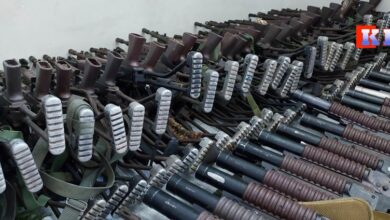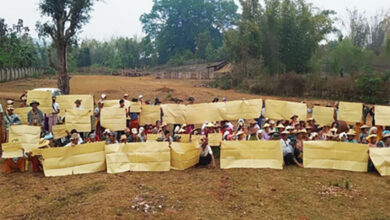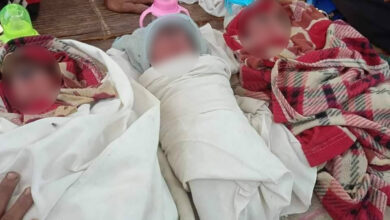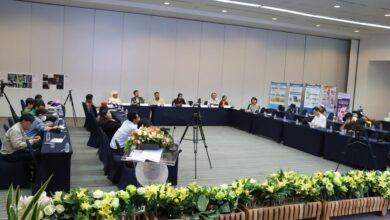You Have to Leave Your Land…Karen Land is State Land…
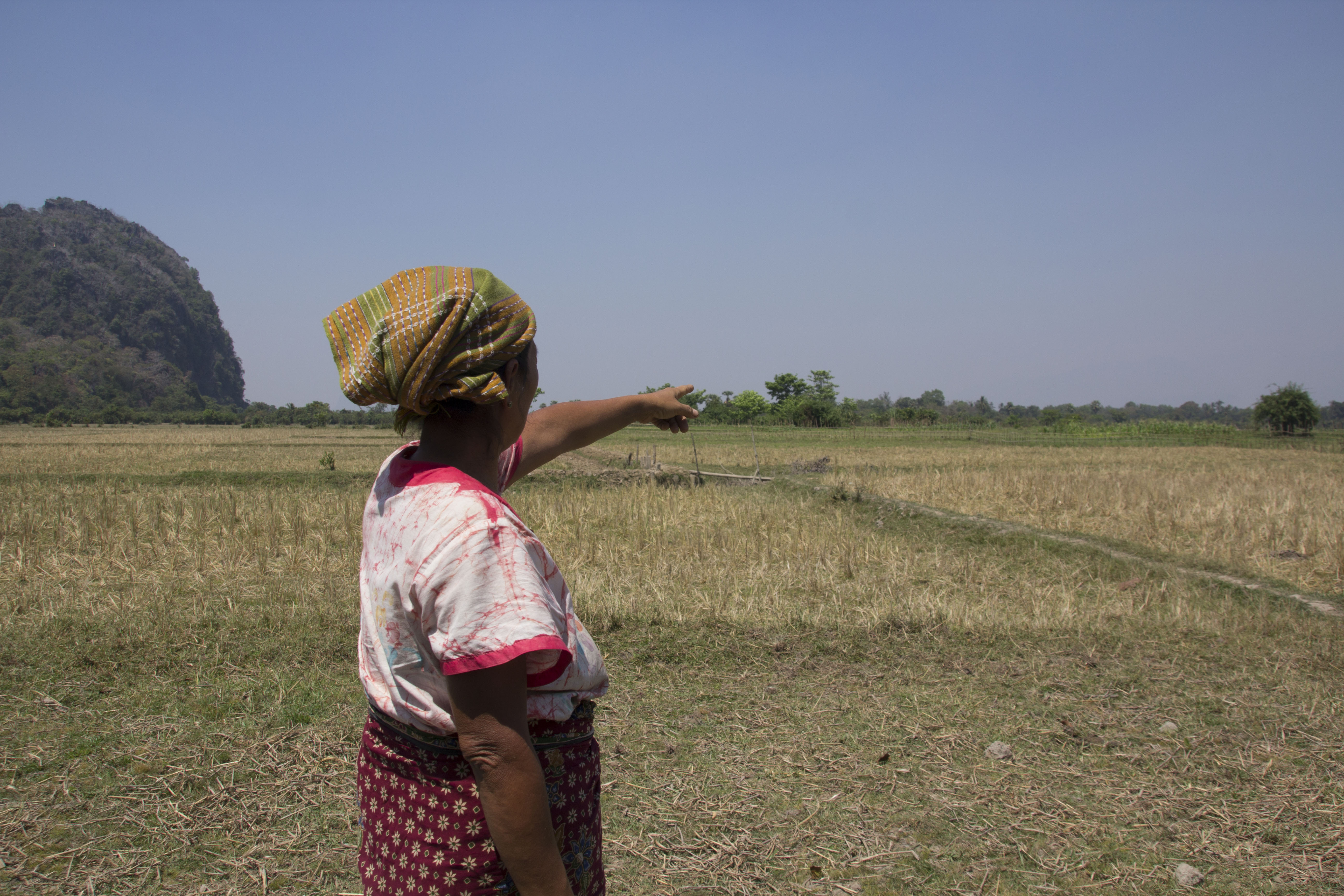
Naw Bway Paw looks out of her windowless thatched bamboo home in Hlaing Bwe Township, Karen State, and remembers the day in 1996 when the Burma Army came and took her land. Naw Bway Paw in a video interview with Karen News describes how she lost her ancestral home and lands.
“One day a soldier arrived at my home in Lay Kaw Hti village and asked to stay until the rainy season was finished. It was a Battalion Commander called Saw Win and he lived with us for almost a year,” she says before adding. “Then he told us that we have to leave…that we have to live outside our land. We were not allowed to stay in their Battalion area, so they forced us to leave.”
Commander Saw Win ordered Naw Bway to sign a paper confirming that the land was legally not hers she refused even though the soldiers were armed.
“The commander said, ‘‘Now the land is owned by the State, so you all have to leave, you can’t live here. It’s all ruled by the State. I argued with him and said that we had farmed this land for generations, but he said: ‘now you argue with me…I am a soldier. I have a gun and I can do anything to you.’”
Naw Bway and the villagers left, but all refused to sign away their land. “I couldn’t sign – I would rather leave. Nobody in the village signed,” she said that without land to farm on, just living day-by-day had was a struggle.
The Burma Army under the previous military regime confiscated thousands of acres of villagers land, using it for plantations and to build military camps. In 2012 the current government established a Land Acquisition Investigation Commission to handle the thousands of land confiscation claims made by villagers. Villagers in dispute with the government over land confiscation claim the Land Acquisition Investigation Commission is toothless – it has no decision-making powers. Within months, the Commission had received more than 2,000 claims.
Human rights organisations warn that reports of land confiscation are on the rise.
A report released by Karen Human Rights Group in May, Truce or Transition? Trends in human rights abuse and local response in Southeast Myanmar since the 2012 ceasefire, noted that report of land grabs in South Eastern Burma were increasing following the signing of a ceasefire between the Karen National Union and the Burma Army in 2011. The KHRG report documented that land confiscated by the Burma Army had not been returned while the Government used laws classifying villagers’ land as uncultivated or state-owned without the consultation of locals, often uprooting their lives.
“Since the ceasefire, villagers have begun to report increasingly about land confiscation for mining, logging, dams, infrastructure development and commercial agriculture. Land is confiscated by armed actors or the Myanmar government in collaboration with companies for those projects.” KHRG said.
In an earlier interview with Karen News, Saw Albert Moo, KHRG’s Field Director, stated that in spite of the cessation in conflict, the lives of many villages had not improved significantly. “The life of villagers that has been impacted by the conflict in staying the same as it was in the past. Their livelihood options, their living conditions, ongoing militarisation (living under heavy army camp activity and soldiers) is still very difficult. Some villagers who been displaced for a long time, still cannot return to their villages,” Saw Albert said.
Saw Albert added, “Because of land confiscation, tens of thousands of villagers have been displaced [including Toh Boh Dam in Toungoo District] and communities face increasing water contamination and damage to land because of development projects.”
The Asian Human Rights Commission has also warned of a “frenzy” of land confiscation perpetrated by the government or government-linked companies. “Reports of the number of cases and scale of “land confiscation”—a euphemism for theft by government authorities and army-linked cronies—continue to grow,” the AHRC said in a statement last month, “At the same time, conflicts over land have escalated as farmers attempt to regain land taken from them in earlier years,” AHRC said, adding, “A consistent feature across these reports is the role that the courts and police have played in support of cronies and military interests.”
Naw Bway sweeps her hand across verdant fields lined with coconut trees, which rest under the shadow of Ta Nay Chah (Nabu) Mountain. “This was my land – here we grew beans, cucumbers, tobacco, we could sell and trade them for everything… Now I have no land. My house now is like a chicken coop. All I can do now is survive, I am so sad.”
Naw Bway lives in hope that one day she will have her land returned to her. “I wish that one day I will get my land back. When I look at my land today I know exactly where everything is – I planted those coconut trees over there, and there I planted those mangoes. And here is where I planted the dogruit… I remember it all. But every year I see the Burma Army come and take all of the fruit from those trees… My trees… they always leave nothing.”
The future of Naw Bway, without a means to earn an income or grow food, is uncertain. “This farm belonged to my great-grandparents, it was passed on to each generation. I thought that I would give this farm to my children, but now we can’t depend on that. The older I get the more difficult life will become. What am I going to do?”

